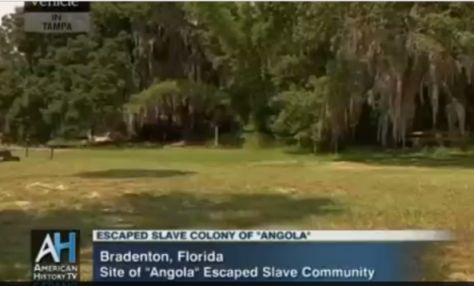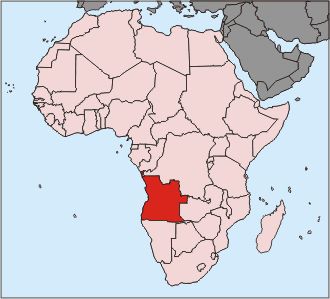 |
 |
| Angola, Florida | Angola, Southern Africa |
Escaped Slave Community of Angola
“The lost community of Angola was an escaped slave enclave in Florida from 1812-1821, until it was raided by the U.S. after Spain ceded the territory. On site at Manatee Mineral Springs in Bradenton, Vickie Oldham spoke about the colony and Uzi Baram talked about the archeological dig. Professor Baram also demonstrated the laboratory work involved at the New College Public Archaeology Lab in Sarasota. Film footage was shown of excavation work in 2009.” View 2011 video about Angola Florida at c-span.org
“According to historians William S. Coker and Thomas D. Watson, “other slaves joined the blacks on the Suwannee and some fled as far south as Tampa,” after the fort’s obliteration. 21 There they built an autonomous community and cultivated the fields along the Manatee River, present day Bradenton. This community would be termed “Angola,” the last remaining stronghold for the free blacks in Florida. The term “Angola” was ascribed because many of the blacks were West African slaves who had escaped from the Carolinas. …. The Angola community, approximately located at present-day Sarasota, was a refuge for blacks escaping the onslaught of white slave raiders. Its population varied between 750 and 900 residents. Considering the accounts of the Creek raid on Angola, it appears that the combined number of refugees, black and Seminole, with those taken in the raid, amount to six or seven hundred at the time of its destruction.” libcom.org
Angola, West Central Africa
“The civilization the Africans left behind [in Angola] was highly developed and included rural villages, small towns and large urban centers. This area was rich in natural resources including a variety of tropical trees, wild game and fish, and assorted minerals such as silver and copper. The kingdom of Ndongo and the neighboring kingdom of Kongo were ruled by kings, but the villages were self-governing following local customs and legal traditions. The Portuguese were the first Europeans to explore and trade with the[local] populations…” History is Fun
Photos:c-span.org Wikicommons
